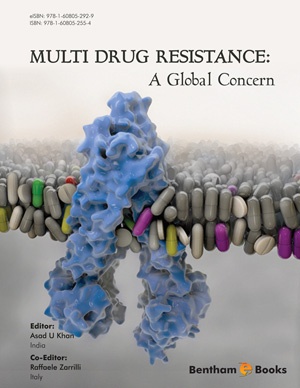Abstract
The Multidrug Resistance Associated Proteins ((MRP1, MRP2, MRP3, MRP4, MRP5, MRP6, MRP7, MRP8 and MRP9) belong to the ATP-binding cassette superfamily (ABCC family) of transporters expressed differentially in the liver, kidney, intestine and blood-brain barrier. MRPs transport a structurally diverse array of endo- and xenobiotics and their metabolites (in particular conjugates) and are subject to induction and inhibition by a variety of compounds. An increased efflux of natural product anticancer drugs and other anticancer agents by MRPs in cancer cells is associated with tumor resistance. These transporting proteins play a role in the absorption, distribution and elimination of various compounds in the body. There are increased reports on the clinical impact of genetic mutations of genes encoding MRP1-9. Therefore, MRPs have an important role in drug development, since a better understanding of their function and regulating mechanism can help minimize and avoid drug toxicity, unfavorable drug-drug interactions, and to overcome drug resistance.
Keywords: ATP-binding cassette superfamily, xenobiotics, multidrug resistance, blood-brain barrier, drug toxicity, genetic mutations, tumor resistance, transporting proteins, drug-drug interactions






















